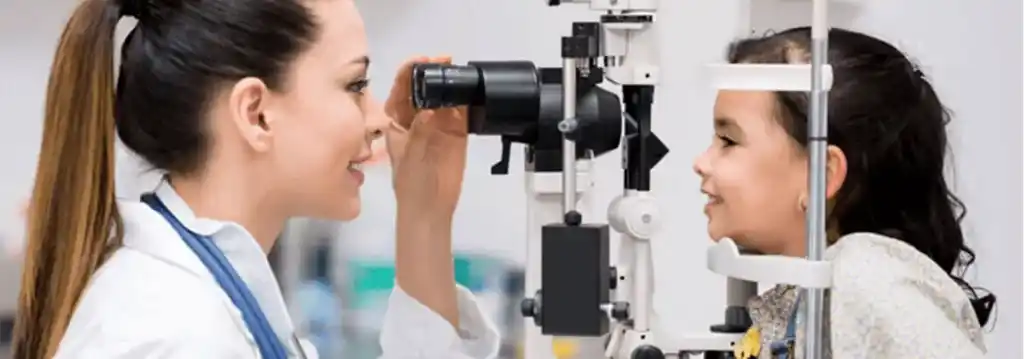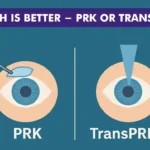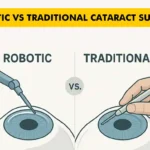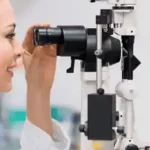A corneal abrasion can be defined as an injury to the cornea in your eye, usually a scratch or scrape. The cornea is the transparent layer of tissue that protects the visible parts of your eyeball, the ones facing outwards. It protects both the Iris and Pupil of the eye from harm from any outside impurities. Therefore, an abrasion to the cornea is a cause for concern as it can enable further damage to your child’s eyes and eyesight.
How do children get Corneal Abrasions?
Usually, eyelashes and eyelids protect even the cornea from most invasions, but often, particles of dust and impurities get close enough to brush against the cornea. Children are more prone to these as they play outdoors, near sand or dirt and are not very attentive towards the protection of eyes. Here are some of the most common ways by which your child can get a corneal abrasion:
- The cornea can get scratched from fingernails, your child’s toys and other objects brought too close to the eye.
- External irritants like dirt, pebbles, insects, wood shavings, hay etc. are all things that can easily flow into the eye cause abrasions.
- Chemical pollutants and fumes in the air are another cause for corneal abrasions.
- In slightly older children, ill-fitting lenses and improper use of make-up can also cause harm to their cornea.
What symptoms to look for in kids?
Different children react to injuries differently, but some symptoms are common in all individuals affected by corneal abrasions:
- The primary symptom is a newly developed trouble in vision or in seeing accurately.
- Accompanying the eyesight problem, your child might also experience a stinging or burning sensation in the eyes.
- You can observe persistent redness and wateriness in your child’s eyes.
- Their eyelids might have swelling, inflammation or periods of continuous blinking/twitching.
- General pain in the eye and specifically when they look at bright lights.
- Some kids also complain of feeling something constantly being present in the eye.
After identifying some or all of the above symptoms in your child, the logical step is to consult an ophthalmologist as soon as possible. Professional care at the earliest prevents the chance of increasing the damage.
Read Also: Common Eye Diseases in Children
What treatment can you do at home?
Once you realise the problem, there are some steps that you can take immediately at home to improve the condition and soothe your child. Take a look at the list:
- Rinsing the eye with clean water or plain saline solutions can wash away any of the particles or irritants still present in his/her eye.
- Tell your kid to blink several times to push out the particle. Another way to do so is by pulling the upper-eyelid over the lower one so that the lower-eyelid can brush-off anything that the upper one can’t push out. This may also produce tears in your child’s eyes, something that further cleanses impurities.
- If you can see something stuck in the eye, do not remove it yourself because that can worsen the condition.
- Instruct your kid to not rub his or her eyes along with forbidding the use of cotton swabs or tweezers near the eyes.
- Take your child to the doctor as soon as possible and make sure that he or she follows the treatment routine diligently. This can include putting eye drops on time, applying ointments or even keeping an eye-patch for some days.
Preventive Measures for Corneal Abrasions
The best preventive measure is to wear protective eyewear in conditions where it is required, like in swimming pools, when working with chemicals, where there is too much dust in the air etc. Other than that, hats, caps and other such objects can also protect your kids’ eyes from direct contact from many particles. You can also teach your children to be very careful and not put any potentially harmful objects too close to their open eyes.
Read Also: 7 Things You Should Teach Your Children about Eye Safety





